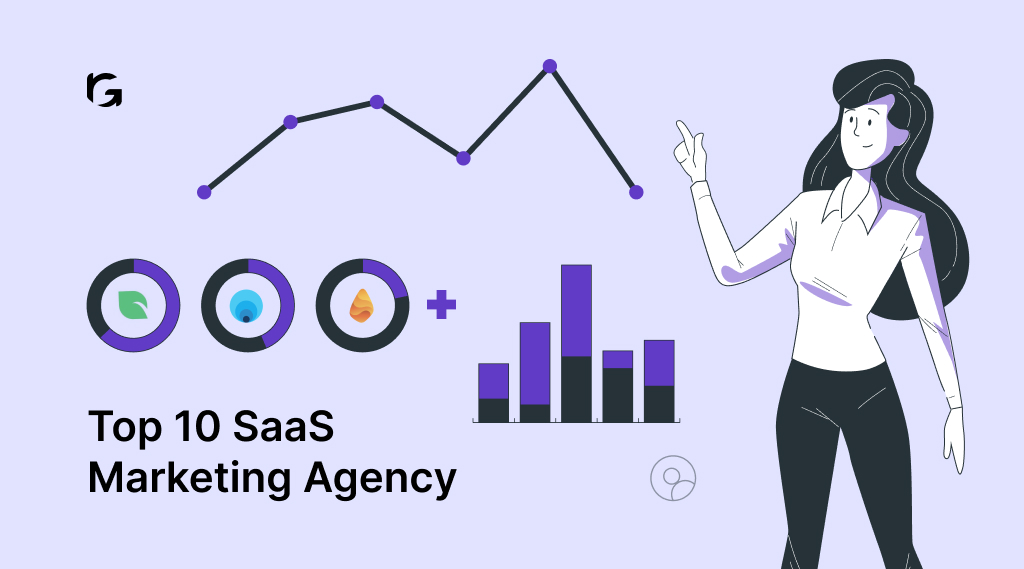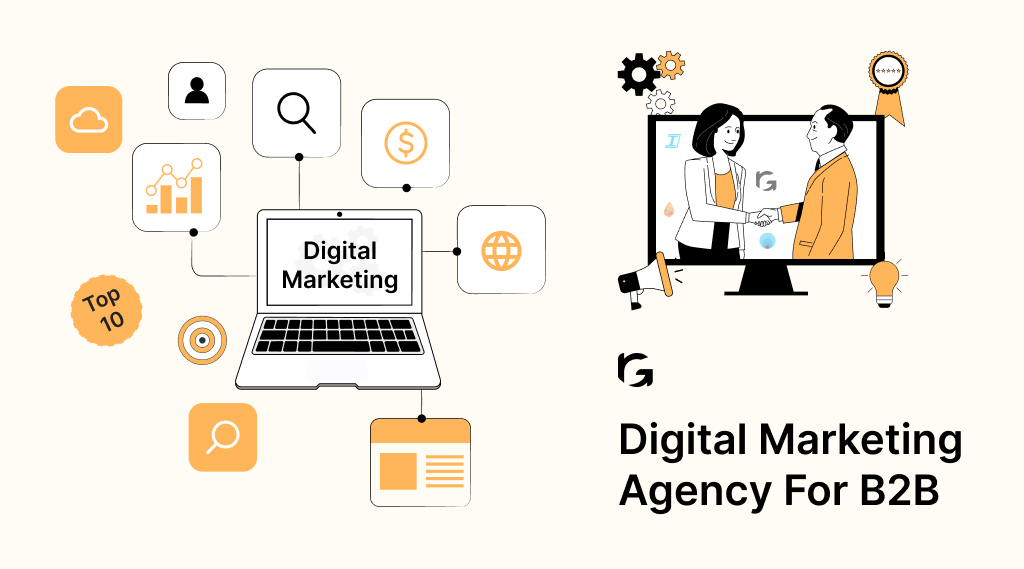Introduction
Enterprise SEO, also known as corporate SEO, is a specialized approach to search engine optimization tailored for large-scale businesses and organizations.
Many large-scale businesses are seeking B2B marketing consultants for SEO strategies and it’s for a very good reason. Because it is known that over 62% of B2B marketers are seeking SEO in their strategy. Interesting, yes? So, why do you have to be left out of SEO?!
In this blog post, we will discuss the complexities of enterprise SEO, analyzing what sets it apart from other strategies, the challenges it poses, and how to craft an effective enterprise SEO strategy.
To get started, let’s start from the beginning.
What is enterprise SEO?
Enterprise SEO refers to the practice of optimizing a website’s visibility and performance in search engine results pages (SERPs) on a large scale, typically for businesses with extensive online presence and numerous web properties.
Unlike traditional SEO, which may focus on smaller websites or individual pages, enterprise SEO involves managing and optimizing vast arrays of web assets, often across multiple domains and platforms. It encompasses various aspects of SEO, including technical optimization, content strategy, link building, and performance analysis, all tailored to meet the unique needs and challenges of large enterprises.
Moreover, enterprise SEO extends beyond merely improving rankings and traffic; it’s about enhancing the overall digital presence and authority of a brand across the vast expanse of the internet. This includes optimizing not only for traditional search engines like Google but also for other platforms and channels such as social media, online marketplaces, and industry-specific directories.
Enterprise SEO strategies tend to dive deep into understanding user intent, behavior, and engagement metrics to deliver personalized experiences and drive conversions at scale. By leveraging advanced analytics, machine learning algorithms, and automation tools, enterprises can gain deeper insights into their audience’s preferences and optimize their digital assets to deliver maximum value and impact.
Now, let’s discuss how it differs from other SEO strategies.
What makes enterprise SEO different from other strategies?
Enterprise SEO differs from other SEO strategies in several key ways. While we cannot list all of them here, let’s discuss only the major key things you should know about.
1. Scale
Enterprise SEO operates on a much larger scale than traditional SEO efforts, involving optimization across numerous websites, subdomains, and digital properties.
2. Complexity
Managing enterprise-level SEO requires dealing with complex site architectures, diverse content types, and multiple stakeholders, adding layers of complexity compared to smaller-scale SEO campaigns.
3. Resource allocation
Enterprises often have dedicated teams or agencies, ample budgets, and access to advanced SEO tools and technologies, enabling them to execute sophisticated SEO strategies and initiatives.
4. Integration with other departments
Enterprise SEO efforts often intersect with various departments within an organization, including marketing, IT, content, and analytics, necessitating seamless collaboration and alignment across teams.
5. Global reach
Many large enterprises operate on a global scale, requiring multilingual SEO strategies, geo-targeted optimizations, and localized content to cater to diverse audiences and markets.
6. Performance monitoring
Enterprise SEO necessitates robust performance monitoring mechanisms to track the effectiveness of SEO initiatives across diverse digital properties. This involves analyzing key performance indicators (KPIs) such as organic traffic, keyword rankings, conversion rates, and revenue attribution to measure the impact of SEO efforts and identify areas for improvement.
7. Scalability
Scalability is a critical aspect of enterprise SEO, as it involves managing SEO strategies that can adapt and scale with the growth of the business. This includes developing flexible processes, workflows, and infrastructure to accommodate changes in website structure, content volume, and market dynamics while maintaining consistent SEO performance.
8. Data-driven decision making
Enterprise SEO relies heavily on data-driven decision-making, leveraging insights from analytics platforms, SEO tools, and business intelligence systems to inform strategy development and optimization efforts.
By analyzing data trends, user behavior patterns, and competitive landscapes, enterprises can make informed decisions to prioritize initiatives, allocate resources effectively, and drive continuous improvement in SEO performance.
Top 5 challenges of enterprise SEO
Despite its potential benefits, enterprise SEO comes with its share of challenges.
Here are the top five challenges faced by enterprises in their SEO efforts.
1. Technical complexity
Managing the technical aspects of SEO, such as site structure, crawlability, and indexation, can be daunting for large websites with complex architectures and dynamic content.
2. Content governance
Ensuring consistency, relevance, and quality across a vast amount of content can be challenging, especially when dealing with decentralized content creation and multiple content management systems (CMS).
3. Organizational silos
Enterprises often struggle with organizational silos, where different departments operate independently, leading to disjointed SEO strategies, duplicate efforts, and missed opportunities for synergy.
4. Algorithm updates and volatility
The ever-changing landscape of search engine algorithms and ranking factors requires enterprises to stay agile and adaptive, constantly monitoring and adjusting their SEO strategies to maintain visibility and rankings.
5. Competitive landscape
Large enterprises often face stiff competition from both established players and agile newcomers in their industry, making it crucial to stay ahead of the curve with innovative SEO tactics and strategies.
How to plan your 2024 enterprise SEO strategy
It’s essential for enterprises to develop a robust SEO strategy that addresses the unique challenges and opportunities of the digital landscape.
Here’s a step-by-step guide to planning your enterprise SEO strategy for the year ahead:
1. Audience and market analysis
Conduct comprehensive research to understand your target audience, their search behavior, and market trends. Use data analytics and market intelligence tools to identify relevant keywords, topics, and opportunities for content optimization.
2. Technical audit and optimization
Perform a thorough audit of your website’s technical infrastructure, including site speed, mobile-friendliness, schema markup, and URL structure. Implement technical optimizations to improve crawlability, indexation, and overall site performance.
3. Content strategy and governance
Develop a content strategy that aligns with your business goals, target audience, and SEO objectives. Establish content governance processes to ensure consistency, relevance, and quality across all digital assets. Leverage data-driven insights and content optimization tools to create engaging, SEO-friendly content that resonates with your audience.
4. Link building and authority building
Focus on building high-quality backlinks from authoritative websites and industry influencers to enhance your website’s authority and credibility. Invest in outreach campaigns, guest blogging, and strategic partnerships to acquire relevant backlinks and boost your site’s visibility in search results.
5. Monitoring and measurement
Implement robust tracking and analytics mechanisms to monitor the performance of your SEO initiatives and measure key metrics such as organic traffic, keyword rankings, conversion rates, and ROI. Use data analytics platforms and SEO monitoring tools to gain actionable insights and make data-driven decisions to optimize your SEO strategy continuously.
Enterprise SEO strategies & tactics that work
There are a lot of strategies are there when it comes to enterprise SEO. To make you receive the best and most tailored B2B SEO strategies, you should reach out to us!
However, here are some proven strategies and tactics that can help enterprises maximize their SEO effectiveness for you.
1. Structured data markup
Implement structured data markup (e.g., schema.org) to enhance the visibility of your content in search results and enable rich snippets, knowledge graphs, and other SERP features.
2. Local SEO optimization
Optimize your website and content for local search intent by incorporating location-based keywords, creating localized landing pages, and managing your business listings on Google My Business and other local directories.
3. Voice search optimization
With the rise of voice search, optimize your content for natural language queries and long-tail keywords that mimic conversational speech patterns. Focus on providing concise, relevant answers to common questions and queries.
4. Mobile-first optimization
Prioritize mobile optimization by ensuring that your website is responsive, fast-loading, and user-friendly on mobile devices. Leverage Accelerated Mobile Pages (AMP) and mobile-friendly design principles to improve the mobile user experience and maximize your visibility in mobile search results.
5. AI-powered SEO tools
Embrace AI-powered SEO tools and technologies that leverage machine learning algorithms to automate and optimize various aspects of your SEO strategy, such as keyword research, content optimization, and link building. Examples include SEO platforms like BrightEdge, SEMrush, and Moz, which offer advanced analytics, insights, and automation capabilities for enterprise SEO.
Top 4 tools and services for enterprise SEO strategies
1. BrightEdge
BrightEdge is an enterprise SEO platform that offers a comprehensive suite of tools for keyword research, content optimization, competitive analysis, and performance tracking. It provides actionable insights and recommendations to help enterprises maximize their organic search visibility and drive measurable results.
2. SEMrush
SEMrush is a versatile SEO toolset that caters to the needs of enterprise-level businesses, offering features such as keyword research, rank tracking, site audit, backlink analysis, and competitive intelligence. It provides actionable insights and recommendations to improve your website’s SEO performance and stay ahead of the competition.
3. Moz pro
Moz Pro is a trusted SEO software platform that offers a range of tools and services for enterprise SEO, including keyword research, site audit, link analysis, rank tracking, and on-page optimization. It provides actionable insights and recommendations to help enterprises improve their search engine visibility and drive organic traffic.
4. Ahrefs
Ahrefs is a powerful SEO toolset that provides comprehensive solutions for keyword research, backlink analysis, content auditing, rank tracking, and competitor analysis. It offers a wealth of data and insights to help enterprises identify opportunities, optimize their SEO strategies, and outrank their competitors in search results.
Conclusion
Enterprise SEO presents unique challenges and opportunities for large-scale businesses looking to maximize their online visibility and drive organic traffic.
To make sure you tackle them all, you will need the expertise of a B2B marketing expert, like us! Reach out to us now to get tailored solutions crafted just for you!


